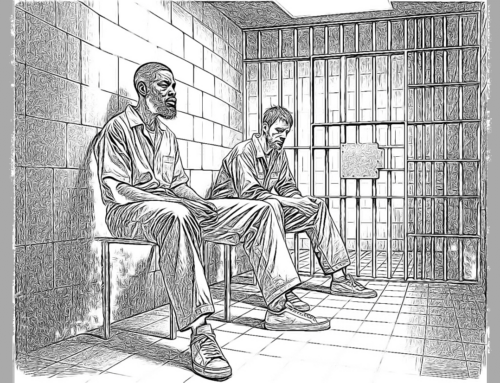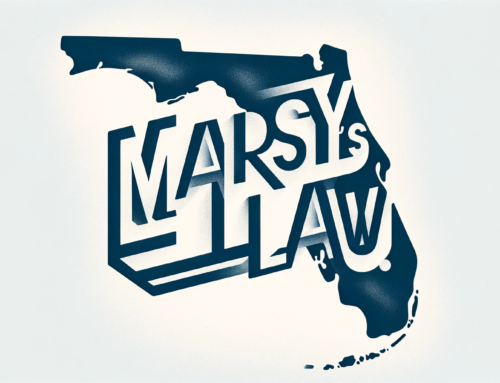Reimagining Pretrial Justice in Miami – Why Our City Should Lead on Bail Reform
America’s cash bail system is broken, unjustly criminalizing poverty and destroying lives. As a criminal defense lawyer in Miami for many years, I’ve witnessed this tragedy firsthand. Now, our chance to lead bold local reforms is being thwarted by politics.
Miami-Dade’s leaders developed plans to reduce reliance on cash bail by assessing defendant risk instead of ability to pay. This data-driven approach aimed to enhance public safety and equity in pretrial decisions. Roll out was slated for this year.
But Florida Gov. Ron DeSantis actively opposes such reforms, vowing to block liberal judges pursuing change. Hours after he proposed tougher statewide bail laws in Miami, our local courts paused implementation, wary of provoking a conflict.
This political resistance prevents progress and leaves our unjust system entrenched. Still, models for change exist that balance reform and public concerns. With perseverance and courage, Miami can pioneer improvements to uphold rights, safety and dignity for all.
The Moral Failure of Cash Bail
On any given day, over 450,000 Americans sit in jail awaiting trial, legally innocent but unable to afford bail. Even brief stays cost jobs, stability, and families. The disruptions pressure defendants to plead guilty simply to get out. Taxpayers spend $14 billion annually, detaining people not convicted of any crime.
Cash bail’s inherent inequity is undeniable. Wealthy defendants easily post bail no matter the charge. Yet poor citizens accused of minor offenses often remain jailed for want of a few hundred dollars. This is a blatant criminalization of poverty completely at odds with America’s values.
Detained defendants also face much longer sentences, as incarceration hinders building a defense. Jail spreads COVID, causes depression, and increases suicide risk. Can such an unjust system truly be called justice? We must challenge business-as-usual and demand better.
Embracing the Call to Action
The political will for reform is growing. Some states curtail cash bail with promising results. Many expand pretrial supervision to reduce detention. Activists demand change.
Miami had a rare chance to lead by addressing bail’s inequities head-on. Our community cares deeply about redemption and equality. We have a responsibility to redeem our outsized role in enabling injustice.
I commend Miami’s leaders for attempting data-driven reforms to base pretrial release more on risk versus ability to pay. Keeping our most vulnerable citizens out of jail aids rehabilitation and public safety. With proper implementation, we can end wealth-based detention without endangering communities.
But the governor’s vocal opposition gives local leaders cold feet. Fears of appearing soft on crime remain strong. Now Miami’s progress is stalled by divisive state politics instead of driving inclusive policy progress. We must persist in educating the public despite demagoguery.
New York’s Promising Model
As detailed in a recent Bloomberg Businessweek article, New York City has built America’s largest pretrial supervised release network, overseen by social workers instead of jailers. This pragmatic approach maintains accountability while upholding defendants’ rights and humanity.
It works like this: Participants avoid jail by checking in regularly under monitoring tailored to risk levels. The tone is supportive, not punitive. Case managers connect people to mental healthcare, housing, jobs, transportation, and other stabilizing services.
Rearrests during pretrial release are rare, single-digit percentages even for violent charges. When our most vulnerable citizens receive help and stay in the community, they thrive. Jail becomes an option of last resort rather than a reflexive go-to.
Seeing these impressive results, New York’s judges and officials widely back the program. Once skeptical prosecutors have also come around. The model scales successfully, now supervising over 8,500 defendants, proving we can shrink unjust pretrial detention without endangering public safety.
Miami should follow New York’s lead when politics allow. We too can shrink overreliance on cash bail through comprehensive, accountable reforms. But we must stand firm amidst resistance and fearmongering. Though difficult, progress is possible if we stay focused on justice.
Next Steps to a Just Future
Miami should follow New York’s lead in implementing a robust pretrial supervised release initiative. To do this effectively, we’ll need buy-in across the system to change ingrained habits. Judges must willingly release more defendants pretrial. Prosecutors should recommend supervision over jail whenever safe.
And supervised release cannot function properly without adequately funded service providers, case managers, and social programs. This comprehensive approach will be complex but is utterly feasible if we make justice our priority.
Reforms will inevitably meet resistance from those wedded to current norms. We must stand firm against inevitable fearmongering and avoid steps backward. Progress requires perseverance, but the righteous path is rarely easy.
To achieve real change, all who believe in justice must speak up and demand reform. Contact officials at every level. Write op-eds calling for bold action. Use your vote to support pro-reform candidates. With community spirit and courage, Miami can turn the page on our broken bail system.
A More Just Miami is Possible
Miami has the tools to catalyze national pretrial justice reforms. We can break unjust cycles destroying lives and degrading human dignity. Now we must summon the perseverance and courage to implement solutions despite political obstruction.
With a spirit of justice and compassion, Miami can still be a beacon of progress that spurs reform nationwide. Though setbacks will arise, we cannot defer the dream. There are too many lives at stake. The time for action is upon us.









